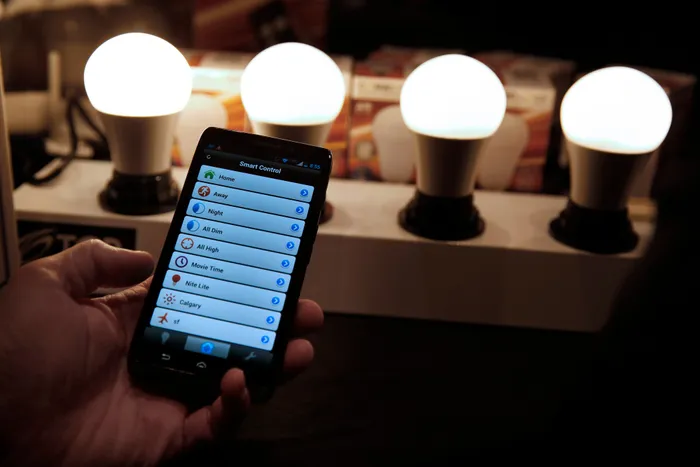You own nothing online: It’s time to reclaim your stuff

An exhibitor demonstrates the Connected by TCP home smart lighting system in this file photo.
Over the past few days, a leading media company challenged a leading artificial intelligence company with a lawsuit over a copyright matter. The New York Times said OpenAI (creator of ChatGPT) had used the media company’s content without permission and without paying for it.
As someone who works in the media industry, I’ve been thinking about the same issue, particularly when it’s time to look at the balance sheets of media companies. The New York Times may win or lose this case, however, its challenge will shake the manner in which technology companies use other people’s content. One such content is personal data and other pieces of information that will live on the internet.
Lately, I’ve been thinking about personal posts, tweets (or Xs, as they say now), and other personal nuggets that will live in virtual space. I’ve come to the realisation that as much as we gain, we’re also losing, by dumping our stuff online.
If you don’t believe me, think about your music. Chances are you no longer have CDs or DVDs. You probably also don’t have your personal photo album in printed form. Most people in the digital sphere store their stuff on the cloud. Our music is on Spotify, Apple Music and other similar services.
To access such content, we have to pay a subscription fee monthly or annually. Failure to pay may mean the end of accessing such material. Now, think again about other posts. For some who post religiously, they would have written a book or published a magazine by now. Don’t even get me started about photographs that live on the cloud and on devices. How much of these things do we have real access to?
By now, I’m sure you get where I’m going with this line of reasoning. It’s about time we start owning stuff. This is not a call to ignore minimalism, it’s my plea for us to start valuing our memories, experiences and creations.
It is also not a refusal to adhere to the sustainability message which calls on us to print less stuff. I’m just pointing out that we’ve adopted practices that take away what ought to belong to us in the name of convenience.
In line with this thought, I have decided to document and say more on my own website and less on social media platforms. I will do so while maintaining a database of stuff that I post on my website. At the same time, I will start to print some of my best photographs (by that I mean more meaningful ones and not everything).
I will accelerate my book-buying behaviour and take my foot off the pedal on audiobooks. I’ll be working on expanding my library. In this regard, I realise I’m not alone.
More people are beginning to see the light and folly of everything digital. I’m reliably informed that wired earphones are making a comeback, as are other things that are more physical in nature.
For now, this may sound trivial until our houses and cars, as well as other important things, are connected. I’m of the view that due to our adoption of digital things we have also gave up on what is due to us and other precious things. It’s time to reflect on what we’ve been doing and count (physically) our blessings. This, I believe, will lead to more meaningful experiences that will enrich our lives.
If you take this seriously enough, there will be no need for you to sue anyone for abusing your content. There will be no need to pay endlessly for what belongs to you. Instead, you would have built archive material that will be worthy of viewing and experiencing in the physical world.

Wesley Diphoko is the Editor-In-Chief of FastCompany (SA) magazine
BUSINESS REPORT